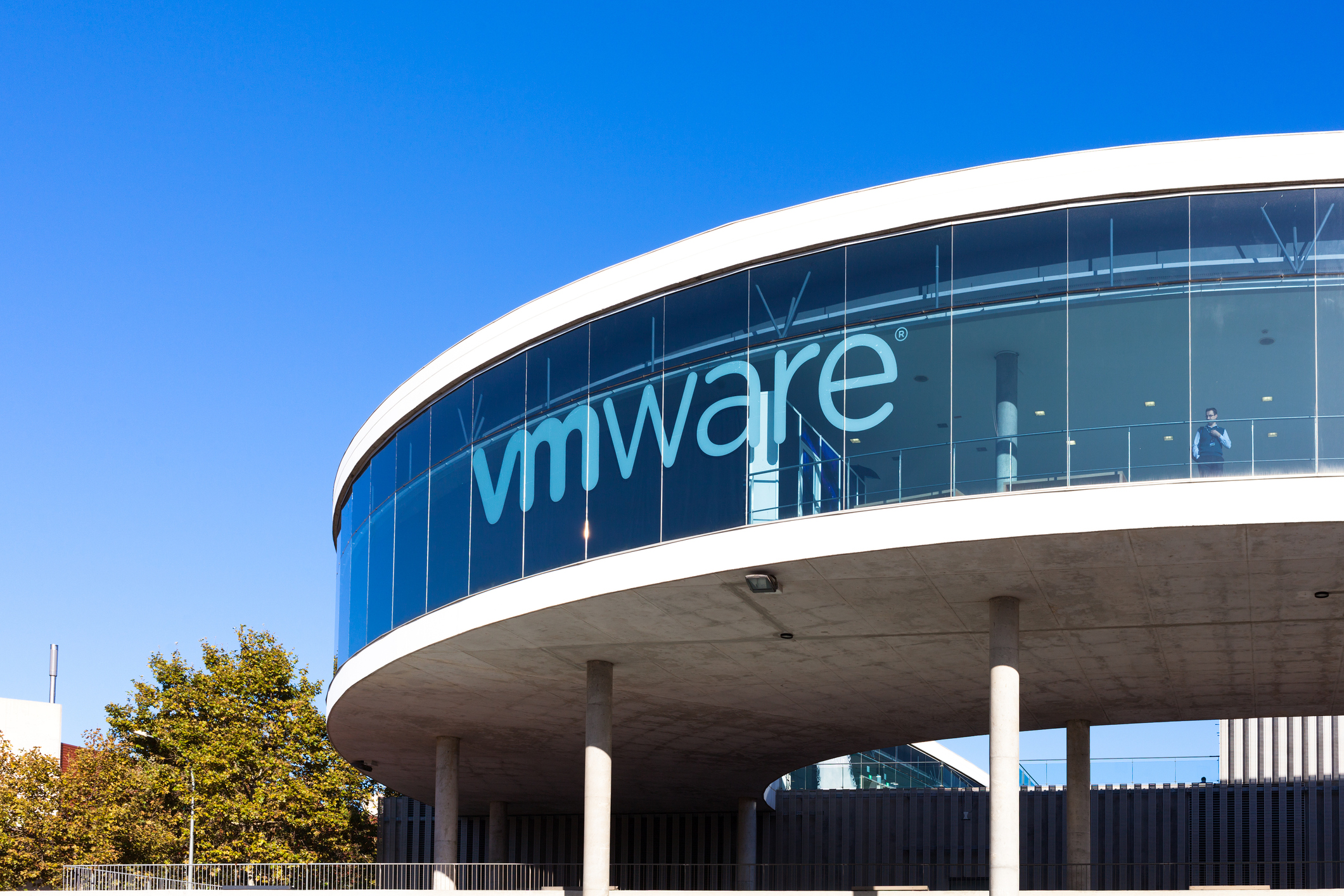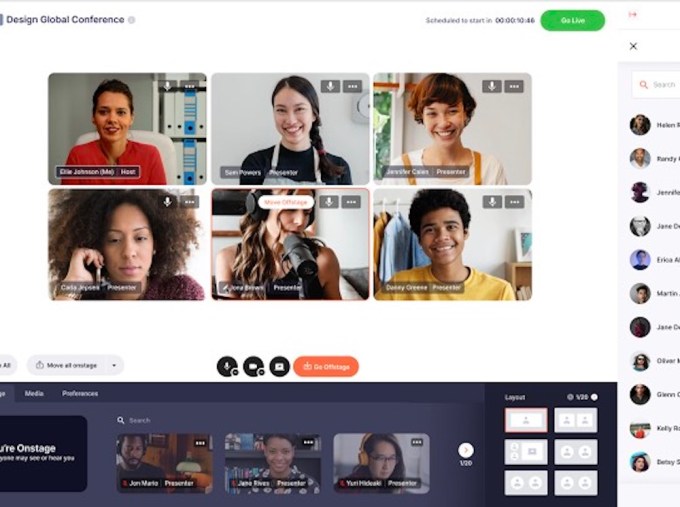Things have been looking up for Belfast since the end of the Troubles. The city has undergone infrastructure improvements over the past two decades, tourism has boomed thanks to attractions such as the shipyard where the RMS Titanic was built and Game of Thrones shooting locations, and employment has risen steadily in the city since 2016, according to Northen Ireland’s Department for the Economy. The city also has the famed Queen’s University and low living costs to count in its favor, and gentrification is starting to take place, which shows things are looking up for Northern Ireland’s capital.
And as far as the local startup scene goes, the U.K.’s Tech Nation found in 2018 that about 26% of Belfast’s workforce was employed in tech, and it is among cities in the country with the highest growth potential for 2021.
With that in mind, we reached out to founders, investors and executives in the city to get an inside look at the state of the current tech startup ecosystem. According to the survey, the city is strong in sectors such as fintech, agritech, hospitality tech, emerging tech, cybersecurity, SaaS and medtech. Ignite NI emerged as an important native incubator and accelerator.
Interesting startups that our respondents mentioned include: CropSafe, SideQuest, Aflo, Material Evolution, Cloudsmith, LegitFit, Continually, Gratsi, 54 North Design, Animal Manager, Kairos Sports Tech, Budibase, Incisiv, Automated Intelligence, loyalBe, Konvi, Lane 44, Teamfeepay.com, Axial3D, Neurovalens, Payhere, and Civic Dollars.
Use discount code BELFAST to save 25% off an annual or two-year Extra Crunch membership.
This offer is only available to readers in the U.K. and Europe, and expires on May 31, 2021.
The tech investment scene was characterized as being strong in software and life sciences, but sometimes too conservative or risk-averse. However, this seems to be changing for the better, and foreign direct investment (FDI) is an important growth factor for the ecosystem.
Although there remains uncertainty around how Brexit will affect Northern Ireland, one executive said, “If we play our cards right, we can capitalize on it. Being positioned both in the EU and U.K. markets gives us advantages that we would be foolish to waste.”
One of the founders foresees more private capital flowing into Belfast as global investors realize that “the combination of great local universities and very strong FDI has attracted some brilliant engineers.” The low cost of living is also encouraging for talent to stay put in the city, which makes for a tech scene that’s poised to take off, this founder added.
Here’s who we spoke to:
- Cormac Quinn, founder & CEO, loyalBe
- Susan Kelly, CEO, Respiratory Analytics
- Ryan Crown, co-founder, Hill Street Hatch
- Fearghal Campbell, founder, Pitchbooking
- Jack Spargo, co-founder & CEO, Gratsi
- Brendan Digney, founder, Machine Eye Technology
- Toyah Warnock, co-founder, Lane 44
- Alan Carson, CEO, Cloudsmith
Cormac Quinn, founder & CEO, loyalBe
Which sectors is your tech ecosystem strong in? What are you most excited by? What does it lack?
We’re strong in cybersecurity and (to an arguably lesser extent) fintech. I’m excited by the droves of new startups being created here in all sorts of sectors — traditionally, Belfast hasn’t had a lot of tech startups, but I can see that changing right before my eyes, which is very exciting. I always anticipated having to leave Belfast for the U.S. to be able to start a tech company, but I’m glad this is no longer a requirement or even the standard any more.
Which are the most interesting startups in your city?
There are a few that stand out: Cloudsmith (devtools), LegitFit (scheduling), Continually (chatbots/marketing), and Automated Intelligence (data management). This is certainly not an exhaustive list of interesting startups, just a few that come to mind.
What are the tech investors like in Belfast? What’s their focus?
Investors here can be somewhat conservative and slightly traditional. If you’re raising investment north of £1 million, you would likely need to look outside the jurisdiction. There also just isn’t enough private capital at the moment, which is a shame, as Belfast has some fantastic talent combined with a very low cost of living, which means investor money tends to go further (no crazy rents, reasonable salaries, etc.). It feels we’re at the beginning of a cycle in Belfast, however — I expect to see many more local exits over the coming years, which will likely lead to new private capital inflows.
With the shift to remote working, do you think people will stay in Belfast? Will they move out? Will others move in?
I understand the city was growing pre-pandemic, and I believe this trend will continue once life returns to a semi-normal state. For a long time, Belfast was a city people didn’t want to live in due to historical issues, but that has been slowly changing. New developments are popping up all over the city, from student accommodation to hotels and nice apartments. 15-20 years ago, Belfast had hardly any of this.
Who are the key startup people in your city (e.g. Investors, founders, lawyers, designers)?
Chris McClelland, MD of Ignite NI: He’s a mentor on the city’s top accelerator program. Co-founded BrewBot.
Ian Browne, COO of Ignite NI: Entrepreneur and another mentor to startups in the city.
Mark Dowds: Venture partner at Anthemis, co-founder at Ormeau Baths (in my opinion it’s the city’s best co-working space).
Where do you see your city’s tech scene in five years?
We’re in uncertain times due to Brexit, but I think if we play our cards right, we can capitalize on it. Being positioned both in the EU and U.K. markets gives us advantages that we would be foolish to waste. I do think we will see more private capital flowing into Belfast as global investors realize that the combination of great local universities and very strong FDI has attracted some brilliant engineers. Combine that with the fact that cost of living remains quite low, which means their capital can go much further (rather than going to landlords) and you have a tech scene that’s poised for take-off.
Can you recommend any companies that should appear in our global Startup Battlefield competition?
Cloudsmith.
Susan Kelly, CEO, Respiratory Analytics
Which sectors is your tech ecosystem strong in? What are you most excited by? What does it lack?
Cybersecurity, fintech, digital — strong medtech — needs building. Great incubator and accelerator in Ignite, but needs expansion to the Northwest where deprivation and poor infrastructure need to be addressed. Public funding supports are good, but too fragmented and hard to access.
Which are the most interesting startups in your city?
CropSafe, SideQuest, Aflo (my startup!), Material Evolution.
What are the tech investors like in Belfast? What’s their focus?
Too conservative, “stale, pale, male”, and risk-averse. But changing for the better, slowly. Legal’s far too costly. Needs to shift to a more U.S. type model. Too few women on the scene. Focus on software, which is great, but too risk-averse in hardware. Needs more experienced angel investors. Halo Business Angel Network feels staid.
With the shift to remote working, do you think people will stay in Belfast? Will they move out? Will others move in?
Huge shift back to Belfast and Northern Ireland in general as a result of COVID.
Who are the key startup people in your city (e.g. Investors, founders, lawyers, designers)?
Ignite NI is driving the startup scene via Propel (Pre-Accelerator) and the Accelerator — doing an amazing job. Clarendon, Techstart, various angels, and Catalyst. Big Motive is a key design engine.
Where do you see your city’s tech scene in five years?
With more support from Invest NI, the whole of Northern Ireland can be an innovation hub linked to Ireland via the startup ecosystem.
Can you recommend any companies that should appear in our global Startup Battlefield competition?
CropSafe.
Ryan Crown, co-founder, Hill Street Hatch
Which sectors is your tech ecosystem strong in? What are you most excited by? What does it lack?
We’re strong in the tech industry. We’re excited by changing how we launch hospitality ventures. Belfast is weak in investment and investors.
Which are the most interesting startups in your city?
Payhere, Civic Dollars, and Konvi.
What are the tech investors like in Belfast? What’s their focus?
We’re lacking proper investors in Northern Ireland.
With the shift to remote working, do you think people will stay in Belfast? Will they move out? Will others move in?
The cost of living and quality of life is fantastic in Northern Ireland/Belfast. COVID-19 will see a huge influx of people moving from expensive cities such as London, Manchester, or Dublin and relocating to Belfast.
Who are the key startup people in your city (e.g. Investors, founders, lawyers, designers)?
Chris McClelland.
Where do you see your city’s tech scene in five years?
Booming.
Fearghal Campbell, founder, Pitchbooking
Which sectors is your tech ecosystem strong in? What are you most excited by? What does it lack?
Cybersecurity, SaaS, sportstech. Most excited by a range of early-stage tech companies — [there has been] an explosion in pre-seed and seed level companies over the past two to three years. Weaker at scaling up; relative lack of indigenous scale-up companies. Large number of foreign direct investment from U.S.-based companies into the city.
Which are the most interesting startups in your city?
In the sportstech sector, teamfeepay.com are growing fast. loyalBe are a seed-stage fintech company with big plans for reinventing retail loyalty programs that we always keep an eye on. Later-stage companies like medtech mainstays Axial3D and Neurovalens are doing great things too!
What are the tech investors like in Belfast? What’s their focus?
We have a mix of angel and institutional investors in Belfast. Hard to say a specific focus on a particular industry, but there are a couple of sectors that are strong in the city given the focus of the local universities. Medtech and cybersecurity both feature heavily in the startup scene.
With the shift to remote working, do you think people will stay in Belfast? Will they move out? Will others move in?
Belfast benefits from a relatively low cost of living in relation to the rest of the U.K., meaning that we are seeing an increase in startups moving here from other major cities. The support for early-stage startups has also contributed to this influx. As a city, we are well set up for moving to a hybrid way of working. You can traverse across the center of the city in 15 mins on foot, which means popping into a city center office isn’t a big undertaking.
Who are the key startup people in your city (e.g. Investors, founders, lawyers, designers)?
Invest NI – Government support agency.
Ignite NI – Seed-stage accelerator program.
UlsterBank Accelerator – Early-stage accelerator program.
Aurient Investments – Angel investment group with a diverse investment portfolio.
Where do you see your city’s tech scene in five years?
I believe we will see the strongest seed-stage companies from 2017-2020 becoming established companies within our tech scene to match the influx of FDI companies from further afield.
Jack Spargo, co-founder & CEO, Gratsi
Which sectors is your tech ecosystem strong in? What are you most excited by? What does it lack?
Strong in: Fintech, agritech, hospitality tech, and emerging tech.
Most excited by: support (financial, mentoring, etc.) is available and the cost to build and grow is low.
Weakest in: geographical barriers to rest of UK and EU.
Which are the most interesting startups in your city?
loyalBe, Konvi, and Lane 44.
What are the tech investors like in Belfast? What’s their focus?
Great — good support and intros facilitated by accelerators such as Ignite NI, Catalyst, Techstart, Ormeau Baths, etc.
With the shift to remote working, do you think people will stay in Belfast? Will they move out? Will others move in?
More likely to move in: low cost of living and well set up for being remote already.
Who are the key startup people in your city (e.g. Investors, founders, lawyers, designers)?
Chris McClelland and Ian Browne of Ignite NI; Mark Dowds of anthemis, and Cormac Quinn of loyalBe.
Where do you see your city’s tech scene in five years?
Stronger: a tech hub for the UK and the EU.
Brendan Digney, founder, Machine Eye Technology
Which sectors is your tech ecosystem strong in? What are you most excited by? What does it lack?
Agritech and Constuction tech are industries with huge potential, particularly in Ireland and Northern Ireland, where there are traditional strengths and the opportunity to influence based upon use of AI and data.
Which are the most interesting startups in your city?
Kairos Sports Tech, Budibase, Incisiv, and Automated Intelligence.
What are the tech investors like in Belfast? What’s their focus?
There are a number of VCs/funds that are generally linked to each other and Invest NI. INI is a big support and funder. Catalyst are a not-for-profit support who are possibly the most valuable in the whole system. Investment focus is generally around software and life sciences, although other funds are around. Strong focus on foreign and inward businesses.
With the shift to remote working, do you think people will stay in Belfast? Will they move out? Will others move in?
[People will] move out to rural areas within an hour’s drive of the city.
Who are the key startup people in your city (e.g. Investors, founders, lawyers, designers)?
Catalyst, Ormeau Baths, and Raise Ventures.
Where do you see your city’s tech scene in five years?
Significant growth in the scene, with an expansion into more later-stage businesses.
Toyah Warnock, co-founder, Lane 44
Which sectors is your tech ecosystem strong in? What are you most excited by? What does it lack?
Belfast is a growing hub of fantastic businesses and funding opportunities.
Which are the most interesting startups in your city?
Gratsi, 54 North Design, and Animal Manager.
What are the tech investors like in Belfast? What’s their focus?
SaaS.
With the shift to remote working, do you think people will stay in Belfast? Will they move out? Will others move in?
Belfast is inexpensive to live in. Many people will be moving in.
Who are the key startup people in your city (e.g. Investors, founders, lawyers, designers)?
Ormeau Baths.
Where do you see your city’s tech scene in five years?
It will grow rapidly. Belfast is going through a period of gentrification.
Can you recommend any companies that should appear in our global Startup Battlefield competition?
Lane 44, Animal Manager, and Gratsi.
Alan Carson, CEO, Cloudsmith
Which sectors is your tech ecosystem strong in? What are you most excited by? What does it lack?
Strong in security, fintech, and medtech. Excited about devtools.
Which are the most interesting startups in your city?
Cloudsmith and Axial3D.
What are the tech investors like in Belfast? What’s their focus?
Small investor scene, but with an ambitious founder scene. Medtech and security are popular.
With the shift to remote working, do you think people will stay in Belfast? Will they move out? Will others move in?
No idea. Probably a bit of both.
Who are the key startup people in your city (e.g. Investors, founders, lawyers, designers)?
Techstart Ventures, Ignite NI, Catalyst, Clarendon Co-Fund, Denis Murphy, Colm McGoldrick, and Alastair Bell.
Where do you see your city’s tech scene in five years?
Bigger and better than ever.
Can you recommend any companies that should appear in our global Startup Battlefield competition?
VideoFirst.
Powered by WPeMatico























